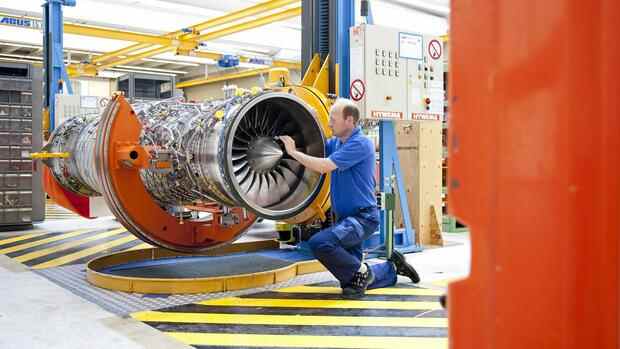For the first time since May 2020, order intake was lower than sales.
(Photo: imago images/imagebroker)
Berlin The thick backlog of orders in German industry fell noticeably in September for the first time since the beginning of the corona pandemic more than two years ago. The Federal Statistical Office announced on Thursday that the number of orders had fallen by 0.9 percent compared to the previous month.
“This means that the order backlog has fallen significantly again for the first time after it had risen by a total of 37.6 percent almost continuously from May 2020 to August 2022,” it said. After the first phase of the corona crisis, strong demand for industrial products combined with impaired supply chains meant that companies were not able to process all incoming orders. As a result, the open orders kept piling up.
“This development has been interrupted for the time being,” emphasized the Federal Office. Against the background of the Russian war of aggression in Ukraine and the energy crisis, the industry landed 4.0 percent fewer new orders in September, while sales grew slightly by 0.2 percent.
For the first time since May 2020, the order intake was lower than the sales of the companies. “As a result, more orders were processed than new ones were added,” it said. Despite the current decline, the order backlog is still at a very high level: compared to September 2021, it was still 6.9 percent higher.
Top jobs of the day
Find the best jobs now and
be notified by email.
Open orders from Germany fell minimally in September by 0.1 percent compared to the previous month, those from abroad fell much more sharply at 1.3 percent. The stock of manufacturers of capital goods such as machines, systems and vehicles decreased by 0.9 percent, while among consumer goods producers it grew by 0.4 percent. In contrast, it shrank by 1.1 percent among manufacturers of intermediate goods.
The reach of the order backlog also declined. In September it was 7.7 months. Since March of this year, the range had been at least eight months consistently. It indicates how many months the companies would theoretically have to produce with unchanged sales without new incoming orders in order to process the existing orders. For manufacturers of capital goods, the range is above average at 11.4 months.
More: “Network of free trade agreements” – How Europe wants to reduce dependence on China
